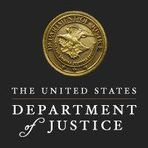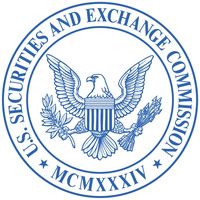The Unraveling of Integrity: Trump’s New Era of Governance
February 12, 2025, 4:02 am

Location: United States, District of Columbia, Washington
Employees: 10001+
Founded date: 1789
Total raised: $6.5M

Location: United States, District of Columbia, Washington
Employees: 1001-5000
Founded date: 1934
Total raised: $392.5M
In the political theater of the United States, the stage is set for a dramatic act. The curtain rises on a familiar face: Donald Trump. With his return to power, the landscape of governance is shifting. Integrity, once a cornerstone of public service, is now under siege. The actions of the Trump administration signal a bold departure from established norms. It’s a game of chess, but the pieces are being moved with reckless abandon.
Trump’s administration is wielding a heavy hand. The Justice Department, once a bastion of oversight, is now a tool for political maneuvering. Prosecutors are being ordered to drop charges against public officials, including New York Mayor Eric Adams. This isn’t just a legal decision; it’s a message. The message is clear: loyalty trumps accountability. The Justice Department is becoming a puppet, strings pulled by the whims of the president.
The recent firings of prosecutors involved in investigations into Trump’s past actions are telling. It’s a purge, a cleansing of those deemed insufficiently loyal. The administration is tightening its grip, ensuring that only those who toe the line remain. This is not merely a continuation of Trump’s first term; it’s an escalation. The speed and ferocity of these actions are alarming. It’s as if the administration is racing against time to dismantle the very guardrails designed to protect public integrity.
The implications are profound. With the removal of independent voices, the executive branch risks becoming an echo chamber. The checks and balances that once held power in check are eroding. Trump’s administration is not just reshaping the Justice Department; it’s redefining the relationship between power and accountability. The very fabric of democracy is at stake.
Trump’s actions are reminiscent of a wolf in sheep’s clothing. He campaigned on a promise to “drain the swamp,” yet his administration is inviting corruption in through the front door. Pardons for politically connected figures, like former Illinois Governor Rod Blagojevich, send a chilling message. The rule of law is being replaced by a culture of impunity. The very essence of public service is being corrupted.
The Foreign Corrupt Practices Act, a safeguard against bribery, is now under threat. Trump’s administration has paused its enforcement, claiming it creates an uneven playing field for American companies. This rationale is a smokescreen. The real intent is to create a landscape where corruption can flourish without consequence. It’s a dangerous game, one that prioritizes profit over principle.
The revolving door between government and business is spinning faster. Trump’s executive order rescinding restrictions on lobbyists is a clear signal. The lines between public service and private gain are blurring. The Trump Organization’s new agreements, which allow for deals with private companies abroad, raise eyebrows. Conflicts of interest are no longer an afterthought; they are the new normal.
The case against Adams illustrates the precarious nature of justice in this new era. Once a target of investigation, he has now been exonerated by the very department that sought to hold him accountable. The narrative has shifted. Adams, who once faced serious allegations of corruption, is now a political ally. The optics are troubling. It’s a quid pro quo, a dance of convenience that undermines the integrity of the office.
As the Justice Department shifts its focus, the implications for democracy are stark. The erosion of accountability is a slippery slope. The actions taken today set a precedent for tomorrow. If public officials can evade scrutiny, what does that mean for the average citizen? The scales of justice are tipping, and the balance is precarious.
The political landscape is becoming a battleground where loyalty is prized over integrity. Trump’s administration is not just rewriting the rules; it’s dismantling the very framework of governance. The consequences of this shift will be felt for years to come. The integrity of public service is at risk, and the public’s trust is waning.
In this new reality, the role of watchdogs becomes even more critical. Organizations dedicated to upholding democracy and accountability must rise to the challenge. The fight against corruption is far from over. The stakes are high, and the need for vigilance has never been greater.
As the curtain falls on this act, the audience is left to ponder the future. Will integrity be restored, or will it remain a casualty of political ambition? The answer lies in the actions of those who refuse to be silenced. The battle for the soul of democracy is just beginning. The stakes are high, and the outcome is uncertain. In this theater of politics, the script is being rewritten, and the consequences will echo through history.
Trump’s administration is wielding a heavy hand. The Justice Department, once a bastion of oversight, is now a tool for political maneuvering. Prosecutors are being ordered to drop charges against public officials, including New York Mayor Eric Adams. This isn’t just a legal decision; it’s a message. The message is clear: loyalty trumps accountability. The Justice Department is becoming a puppet, strings pulled by the whims of the president.
The recent firings of prosecutors involved in investigations into Trump’s past actions are telling. It’s a purge, a cleansing of those deemed insufficiently loyal. The administration is tightening its grip, ensuring that only those who toe the line remain. This is not merely a continuation of Trump’s first term; it’s an escalation. The speed and ferocity of these actions are alarming. It’s as if the administration is racing against time to dismantle the very guardrails designed to protect public integrity.
The implications are profound. With the removal of independent voices, the executive branch risks becoming an echo chamber. The checks and balances that once held power in check are eroding. Trump’s administration is not just reshaping the Justice Department; it’s redefining the relationship between power and accountability. The very fabric of democracy is at stake.
Trump’s actions are reminiscent of a wolf in sheep’s clothing. He campaigned on a promise to “drain the swamp,” yet his administration is inviting corruption in through the front door. Pardons for politically connected figures, like former Illinois Governor Rod Blagojevich, send a chilling message. The rule of law is being replaced by a culture of impunity. The very essence of public service is being corrupted.
The Foreign Corrupt Practices Act, a safeguard against bribery, is now under threat. Trump’s administration has paused its enforcement, claiming it creates an uneven playing field for American companies. This rationale is a smokescreen. The real intent is to create a landscape where corruption can flourish without consequence. It’s a dangerous game, one that prioritizes profit over principle.
The revolving door between government and business is spinning faster. Trump’s executive order rescinding restrictions on lobbyists is a clear signal. The lines between public service and private gain are blurring. The Trump Organization’s new agreements, which allow for deals with private companies abroad, raise eyebrows. Conflicts of interest are no longer an afterthought; they are the new normal.
The case against Adams illustrates the precarious nature of justice in this new era. Once a target of investigation, he has now been exonerated by the very department that sought to hold him accountable. The narrative has shifted. Adams, who once faced serious allegations of corruption, is now a political ally. The optics are troubling. It’s a quid pro quo, a dance of convenience that undermines the integrity of the office.
As the Justice Department shifts its focus, the implications for democracy are stark. The erosion of accountability is a slippery slope. The actions taken today set a precedent for tomorrow. If public officials can evade scrutiny, what does that mean for the average citizen? The scales of justice are tipping, and the balance is precarious.
The political landscape is becoming a battleground where loyalty is prized over integrity. Trump’s administration is not just rewriting the rules; it’s dismantling the very framework of governance. The consequences of this shift will be felt for years to come. The integrity of public service is at risk, and the public’s trust is waning.
In this new reality, the role of watchdogs becomes even more critical. Organizations dedicated to upholding democracy and accountability must rise to the challenge. The fight against corruption is far from over. The stakes are high, and the need for vigilance has never been greater.
As the curtain falls on this act, the audience is left to ponder the future. Will integrity be restored, or will it remain a casualty of political ambition? The answer lies in the actions of those who refuse to be silenced. The battle for the soul of democracy is just beginning. The stakes are high, and the outcome is uncertain. In this theater of politics, the script is being rewritten, and the consequences will echo through history.
